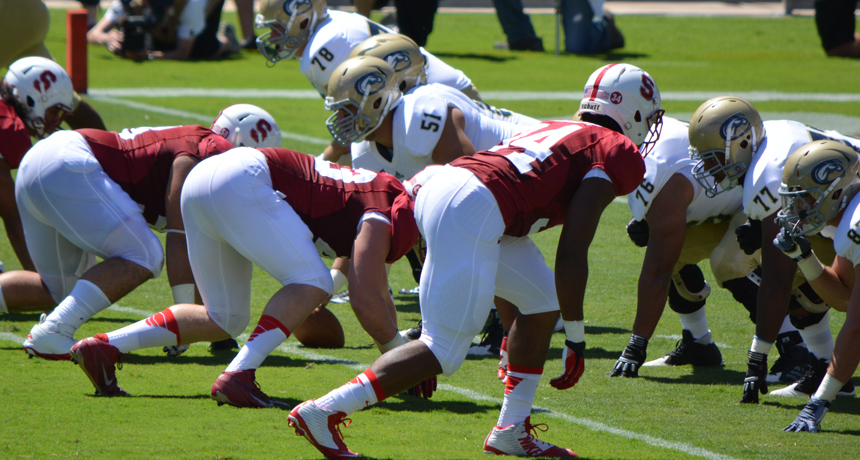Drug-resistant staph common in football players
Athletes should wash their hands (and dirty gym clothes) often

GERMY Players in contact sports need to wash up and clean their clothes to avoid upping their risk of acquiring a nasty bacterium.
Daniel Hartwig/Flickr (CC BY 2.0)







